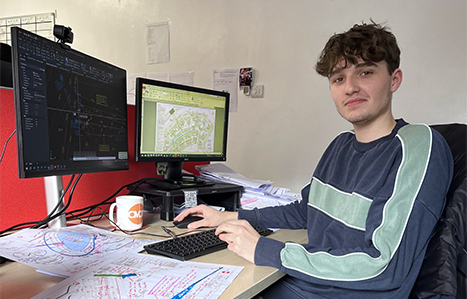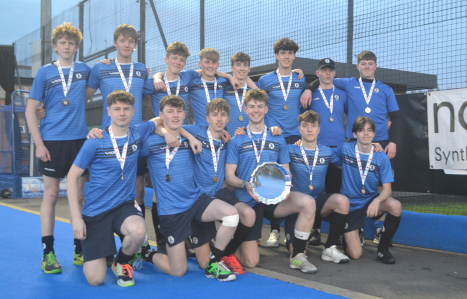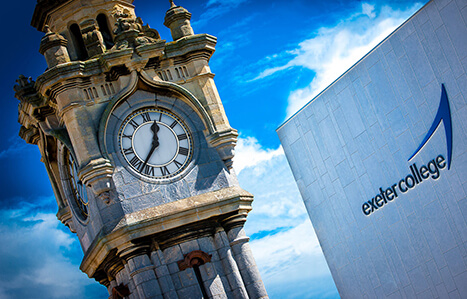
Exeter College Graduate Changes the Face of Gay Rights
Securing an equal age of consent for gay and bisexual men was a long process, drawn out by harmful stereotypes and hysterical attitudes from the media. In 1993, three men took the British Government to the European Court of Human Rights.
Today, we’re talking to Hugo Greenhalgh. He is one of the brave individuals who helped to battle the Government’s discriminatory laws against LGBTQIA+ freedom.
In 1967, the UK’s age of gay consent had been set at 21, even though the consent age for heterosexual couples was 16.
So, on 5th April 1993, three men – Hugo Greenhalgh, William Parry and Ralph Wilde – took the British Government to the European Court of Human Rights to change this unjust disparity.
Greenhalgh, Parry and Wilde appealed to the court, arguing that the consent age of 21 was a breach of human rights and impacted their private lives.
Their appeal, backed by UK LGBTQIA+ rights charity Stonewall, successfully managed to get the age of gay consent lowered to 18. This laid the foundations for Euan Sutherland and Chris Morris, who in 2001, continued the trio’s work by getting the gay age of consent reduced to 16.
But where did Hugo’s activism start?
Hailing from Ribston Avenue, Heavitree, Greenhalgh attended Exeter College between 1989 and 1991. As he studied for his A Levels in Maths, English and Russian, he was also the Gay Officer for the College’s LGBTQIA+ community.
“At that point, Exeter College was one of the two Sixth Form colleges in the country that had Gay and Lesbian officers,” Greenhalgh tells us.
“Katy Lawrence was the Lesbian Officer, and she and I went to the National Student’s Union conferences quite often.
“Katy was bisexual, and bisexuals were even banned from attending NUS gay and lesbian conferences back then. They’ve come to terms with it now, but it was a very strange time.”
Greenhalgh continues, reflecting on his early activism at the College. “Katy and I put up an array of notices around the College to raise awareness. We put up a list of famous people in history who were gay. Edward II and Piers Gaveston, for example, though we put up more contemporary names too.”
Greenhalgh’s actions meant he was no stranger to the principal’s office. “We stirred up trouble,” Greenhalgh says, proudly. “This was the 80s, where being gay or lesbian, bi or trans was seen as beyond the pale.”
But it was through his Devon upbringing that Greenhalgh claims he gained his courage to be the voice of thousands suffering the same discrimination. “At its heart, Devon is a very liberal place. You’ve got Exeter, Totnes, Dartington… There’s something about the culture in Devon that allows and encourages difference.
“And, of course, I was informed by activism at the time. I was bouncing around, angry and shouty. I was just being me.”
“I didn’t understand the law. I couldn’t walk down the street holding my boyfriend’s hand at 16, in case I got arrested. It was ludicrous. I knew this was the right thing to do. Anyone would have done the same thing in the same situation.”
As part of his campaign to lower the gay age of consent from 21 to 16, Greenhalgh, William Parry [his boyfriend], and Ralph Wilde spent 18 months on the road travelling up and down Britain. They gave speeches at town halls and students’ unions, broadcasting their message on TV and radio.
“People just weren’t aware of the disparity between the ages of 16 [the consent age for heterosexual couples] and 21,” Greenhalgh tells us.
Greenhalgh hesitates, explaining that halfway through his campaign things “got weird.”
On one of his many radio appearances, Greenhalgh met Dr Adrian Rogers.
Rogers applied to become the Conservative MP of Exeter in the 1990s. He’s well-known for his odious rants about homosexuality and gay sex, under the guise of it being the “best medical practice”.
“I admitted to having a sexual relationship with my partner, Will,” Greenhalgh continues, “and Dr Rogers called for a police officer to arrest me live on air.”
Luckily, the police officer fluffed the arrest, but that wasn’t the end of Greenhalgh’s feud with Rogers.
“Dr Rogers bought a private prosecution against us [Greenhalgh and Parry] several months later. I was questioned under caution at Rochester Row station [London], about our relationship. That was terrifying, as you can imagine.”
In 1993, Greenhalgh, Parry and Wilde applied to the European Court of Human Rights. The Criminal Justice and Public Order Act lowered the age of consent to 18 in 1994.
“Parliament had a choice between 21, 18, 17 and 16,” Greenhalgh explains. “They chose 18, and I was 19 when the campaign began.”
He continued, “Euan Sutherland and Chris Morris picked up the ongoing battle when they were 16. Eventually, in 2000, Tony Blair used the Parliament Act to push through equality.”
He laughs, “You may hate him nowadays, but Tony Blair and the Labour government really helped change the culture of the country at the time.”
“When we campaigned, the press coverage was varied. We had a lot of positive, but a lot of negative as well. The Daily Mail and the Sun were very, very anti-gay, with words like ‘bender’ still allowed as derogatory slurs in print.”
“Our campaign helped change public opinion, and we were fortunate to be backed by Stonewall, too. Tony Blair was entirely behind us, which really helped.”
Though he agrees that attitudes towards gay and bisexual men and women have improved dramatically since the 80s, he’s worried that in recent years, Britain is becoming increasingly complacent. Most of all, he’s concerned that the movement towards equality is nothing more than a ‘tick box’ for the Government, rather than an attempt at any real understanding.
“We think everything in the UK has been done, and it’s okay. I’m worried it’s not. We’re talking a lot about ‘the trans debate’. What debate? What are we debating – people’s existences? It’s ridiculous.”
“The problem, if you ask me as a gay man and a man of the media, is the press agenda. It’s transphobic, and it’s what we need to protect ourselves against.”
Now 49 years old, Hugo Greenhalgh has the same fire he did back in 1993. As the LGBTQ+ editor at the Thomson Reuters Foundation, his articles confront the global problem of homophobia and transphobia head-on.
Read more about our alumni in the latest issue of EXE magazine.



